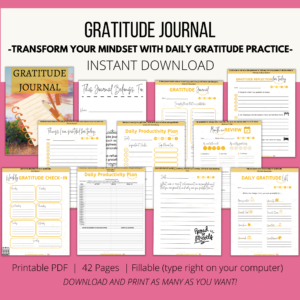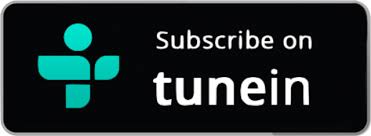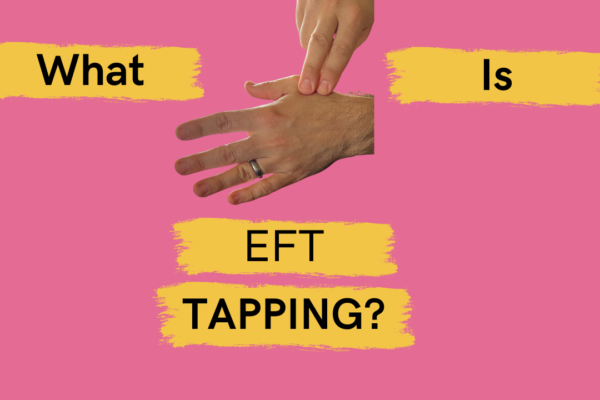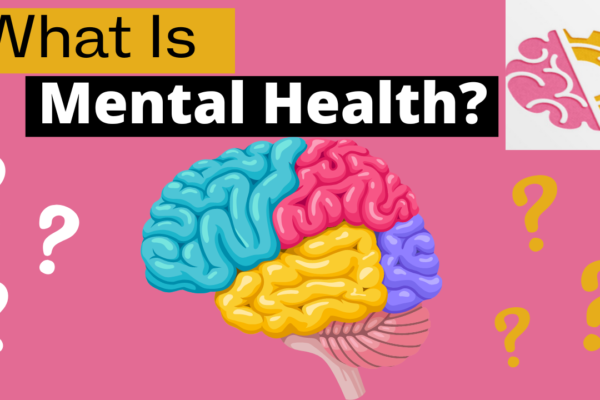Beyond the Buzz: Unpacking ADHD Nuances & Empowering Strategies with Dr. Jennifer Dall
Are you a therapist looking to deepen your understanding of ADHD and enhance your clinical skills? In this insightful episode of The Mental Health Toolbox, Patrick Martin (LCSW) sits down with Dr. Jennifer Dall, Ed.D, a Grief-Informed Neurodivergence Specialist and founder of ADHD Holistically. Diagnosed with ADHD in her 50s, Dr. Dall brings a unique personal and professional perspective, especially on how ADHD presents in women diagnosed later in life.
Table of Contents
In this insightful episode with Dr. Jennifer Dall, we dive deep into ADHD tips, covering essential topics for therapists and individuals alike:
- Challenging Common ADHD Myths: Moving beyond outdated stereotypes, especially regarding adults and women.
- The Evolving Understanding of ADHD: Discussing new research and the lag in public/professional knowledge.
- ADHD in Women & Girls: Focusing on masking, later-life diagnosis, and how symptoms can differ.
- Difficulties in Adult ADHD Diagnosis: Navigating testing challenges, insurance hurdles, and the problem of outdated records.
- Masking ADHD Symptoms: How individuals, particularly women, learn to hide their ADHD and the resulting fatigue.
- Understanding Executive Function Challenges in ADHD: Exploring difficulties with task initiation, multi-step tasks, organization, and time management.
- The Emotional Toll of ADHD: Addressing internalized negative feedback, shame, feelings of inadequacy (“I’m stupid”), and links to anxiety/depression.
- Rejection Sensitive Dysphoria (RSD): Briefly touched upon in the context of intense emotional reactions.
- Differentiating ADHD from Other Conditions: How ADHD can mimic or co-occur with anxiety, depression, and learning disabilities.
- Practical Strategies for Therapists Working with ADHD Clients:
- Adopting a strength-based approach.
- The importance of psychoeducation for clients.
- Coaching clients on self-advocacy and communicating their needs.
- Role-playing difficult conversations.
- Actionable Tips & Techniques for Individuals with ADHD:
- The Pomodoro Technique & Reverse Pomodoro: Simple tools for task initiation and focus.
- Body Doubling: The effectiveness of working alongside others.
- Task Breakdown: Making overwhelming tasks more manageable.
- Time Blocking & Prioritization (e.g., the “3 Things” rule).
- Leveraging an “Interest-Based Nervous System”: Understanding motivation in ADHD.
- Creating Effective Deadlines.
- Managing Distractions (e.g., Lo-Fi music).
- How ADHD Symptoms Differ Across Age Groups (Teens vs. Adults).
- The Impact of ADHD on Daily Life: From completing chores (like laundry) to managing emails and professional projects.
- Dr. Jennifer Dall’s Journey: Her personal experience with a late ADHD diagnosis and her holistic approach through “ADHD Holistically.”
- The Importance of Self-Compassion and Experimentation in finding what works for ADHD management.
Navigating the complexities of Attention-Deficit/Hyperactivity Disorder (ADHD) can feel like trying to solve a constantly shifting puzzle. Whether you’re a mental health professional striving to enhance your practice, or an individual seeking deeper understanding, the landscape of ADHD is rich with information, and sometimes, misinformation.
Here at The Mental Health Toolbox, where we’re passionate about teaching the art and business of therapy, we recently had the privilege of sitting down with Dr. Jennifer Dall, a Grief-Informed Neurodivergence Specialist and the founder of ADHD Holistically. Our conversation on the MHT Podcast was a goldmine of insights, challenging outdated stereotypes and offering practical, compassionate approaches to supporting those with ADHD.
Missed the episode? Listen/Watch it Here:
Dr. Dall, who herself was diagnosed with ADHD in her 50s, brings a unique and deeply personal perspective to her work. She specializes in helping women identify what truly works for them, focusing on holistic, practical strategies that simplify daily life with ADHD tips to thrive.
Key Takeaways from Our Conversation:
- Challenging Outdated Perceptions: We delved into how the common image of ADHD (often the young, hyperactive boy) fails to capture the diverse ways it presents, especially in girls, women, and adults who may have developed sophisticated masking techniques.
- The Reality of Masking & Fatigue: Dr. Dall highlighted the immense energy it can take to “mask” ADHD symptoms, often leading to profound fatigue that can be mistaken for other conditions.
- Navigating Diagnosis in Adulthood: We discussed the significant hurdles adults face in seeking and obtaining an ADHD diagnosis, from finding qualified assessors to the limitations of relying on childhood records.
- Executive Functioning Unpacked: The conversation shed light on common executive function challenges – like task initiation, managing multi-step projects (think laundry!), time blindness, and organization – and how these manifest in daily life.
- Emotional Landscape of ADHD: We touched upon the internalized shame and negative self-talk (“I’m stupid,” “I’m lazy”) that can arise from years of misunderstanding, and the importance of addressing the emotional toll, including aspects like Rejection Sensitive Dysphoria (RSD).
- Actionable ADHD tips and Strategies for Support: Dr. Dall shared valuable techniques, including:
- The Pomodoro Technique (and its reverse!) for tackling tasks.
- The power of Body Doubling for focus and accountability.
- The importance of breaking down tasks and externalizing deadlines.
- Understanding the “interest-based nervous system” to better grasp motivation in ADHD.
Why This Matters for Therapists (and Everyone!):
As therapists, staying informed about the nuances of ADHD is crucial for providing effective, empathetic care. Understanding the lived experience, particularly the challenges around late diagnosis and masking in women, allows us to tailor our interventions more precisely. For individuals with ADHD or those who support them, this knowledge fosters self-compassion and opens doors to new coping strategies.
Want to Dive Deeper & Equip Your Practice?
This conversation was packed with so much valuable information, and we wanted to make it even more accessible for you. That’s why I’ve created a FREE “ADHD-Informed Therapy Handout and Recommended Book List”!
This comprehensive resource summarizes key insights from our discussion with Dr. Dall and integrates other evidence-based knowledge. It’s designed to help therapists:
- Deepen their understanding of ADHD assessment and nuances.
- Discover practical therapeutic approaches and client tools.
- Access a curated list of recommended books for both professionals and clients wanting to learn more.
Whether you’re looking to refine your clinical skills or seeking resources for your clients (or yourself!), this handout is a valuable addition to your toolkit.
➡️ [Download Your FREE “ADHD-Informed Therapy Handout and Recommended Book List” HERE!

ADHD TIPS: Informed Therapy Handout and Recommended Book List
Equip yourself with essential knowledge and practical tools for working with ADHD! This free downloadable PDF handout, inspired by insights from The Mental Health Toolbox podcast and evidence-based practices, is designed for mental health professionals seeking to enhance their understanding and therapeutic approach to ADHD.
Inside, you’ll find:
- Key Insights for Assessment: Deepen your understanding of ADHD nuances, including masking, later-life diagnosis (especially in women), emotional dysregulation (like RSD), executive function challenges, and time perception differences.
- Actionable Therapeutic Strategies: Discover effective interventions, psychoeducation points for clients (like the ‘interest-based nervous system’), and tips for fostering self-advocacy.
- Practical Client Tools & Techniques: A curated list of strategies like the Pomodoro Technique, body doubling, task breakdown, and environmental/lifestyle shifts to share with your clients.
- Expert-Curated Recommended Reading List: Handpicked books for both therapists and clients to further their ADHD education and find support.
Whether you’re new to working with ADHD or looking to refresh your knowledge, this handout provides a valuable summary of key considerations and practical applications. Help your clients move from a narrative of deficit to one of difference and strength.
Download your FREE copy today and add this valuable resource to your professional toolkit!
Let’s explore some of the key themes from our conversation, interwoven with evidence-based knowledge and ADHD tips to help you or your clients thrive.
Beyond the Stereotypes: A Fresh Look at ADHD Presentation
One of the first ADHD tips we can offer is to discard outdated stereotypes. For too long, the image of ADHD has been narrowly defined, often as a young, hyperactive boy. Dr. Dall emphasized how older research, often focused on boys, has contributed to this limited view.
- The Reality for Women & Girls: Many women and girls with ADHD, especially those with the inattentive presentation, fly under the radar for years. They might be seen as “daydreamers,” “disorganized,” or “not living up to their potential.” Dr. Dall shared how individuals, particularly women, often become masters of “masking” – expending enormous energy to hide their symptoms and appear neurotypical. This constant effort can lead to profound fatigue and a delayed diagnosis, sometimes well into adulthood, as was her experience.
- Internalized Symptoms: Hyperactivity isn’t always about bouncing off the walls. For many, it’s an internal restlessness, a mind that races with thoughts, making it hard to settle or focus, even when appearing calm externally.
Understanding the “Why”: The ADHD Brain & Executive Functions
A crucial ADHD tip for fostering self-compassion and effective strategies is understanding the neurobiology. ADHD isn’t a character flaw or a lack of willpower; it’s a neurodevelopmental difference.
- The Interest-Based Nervous System: Dr. William Dodson’s concept is pivotal here. Individuals with ADHD often operate on an “interest-based nervous system.” This means motivation isn’t primarily driven by a task’s importance or potential reward, but by genuine interest, novelty, urgency, or passion. This explains why someone with ADHD can hyperfocus intensely on a captivating project for hours yet struggle immensely to start a mundane but necessary chore.
- Executive Function Challenges: At the heart of ADHD are challenges with executive functions – the brain’s management system. These include:
- Task Initiation: That “wall” you hit before starting something? That’s a common ADHD experience.
- Working Memory: Difficulty holding information in mind to complete a task (e.g., remembering multi-step instructions, where you just put your keys).
- Time Perception (Time Blindness): Many with ADHD struggle to accurately sense the passage of time, leading to chronic lateness or underestimating how long tasks will take. This isn’t intentional; it’s a neurological difference.
- Planning & Prioritization: Breaking down large projects or deciding what to tackle first can feel overwhelming.
- Organization: From physical spaces to mental organization of thoughts and tasks.
- Emotional Regulation: This brings us to another critical area.
The Emotional Landscape: Beyond Inattention
One of the most impactful ADHD tips is to recognize and address the emotional component.
- Emotional Dysregulation: While not yet a formal diagnostic criterion in the DSM-5 for ADHD, overwhelming clinical evidence and lived experience point to emotional dysregulation as a core feature for many. This means experiencing emotions more intensely, having quicker shifts in mood, and finding it harder to manage frustration or excitement.
- Rejection Sensitive Dysphoria (RSD): A particularly potent aspect of emotional dysregulation is RSD. This is an extreme, almost painful, emotional sensitivity to perceived rejection, criticism, or teasing. It’s not just “being sensitive”; it’s a profound emotional wound that can be triggered even when no actual rejection was intended. The roots lie in the ADHD brain’s emotional wiring, often compounded by a lifetime of experiencing more correction and negative feedback.
- Internalized Shame & Low Self-Esteem: Constantly feeling like you’re not meeting expectations, being told you’re “lazy” or “not trying,” or struggling with tasks others find easy can lead to deep-seated shame and a damaged sense of self-worth. This is where therapeutic support and self-compassion become vital ADHD tips.
Practical ADHD Tips & Strategies for Daily Life
Knowledge is power, but practical strategies are what make a daily difference. Here are some ADHD tips discussed with Dr. Dall and supported by evidence-based practices:
- Externalize Everything: Your brain’s working memory might be unreliable for holding onto to-dos and appointments. So, an essential ADHD tip is to get it all out!
- Use Planners & Calendars: Digital or paper, find what works and use it consistently.
- To-Do Lists & Task Apps: Break down goals into manageable steps.
- Alarms & Reminders: For everything from taking medication to switching tasks.
- Visual Timers: Excellent for making time tangible, especially during tasks or transitions.
- Tackle Task Initiation & Focus:
- The Pomodoro Technique: Work in focused bursts (e.g., 25 minutes) followed by a short break (5 minutes). This simple ADHD tip can make starting less daunting.
- Reverse Pomodoro: For truly dreaded tasks, Dr. Dall suggested doing something enjoyable for 25 minutes, then tackling the undesirable task for just 5 minutes.
- Body Doubling: Simply having another person present (even if they’re working on something else, in person or virtually) can significantly boost focus and productivity.
- Break It Down: Overwhelmed by a big project? This ADHD tip is key: divide it into the smallest possible steps. “Do laundry” becomes “Gather dark clothes,” then “Put darks in washer,” etc.
- Manage Your Environment & Energy:
- Minimize Distractions: Identify what pulls your focus and create a work environment that supports concentration. For some, Lo-Fi music (as I often use!) works wonders; for others, silence is golden.
- Understand Your Energy Rhythms: Are you a morning lark or a night owl? Schedule demanding tasks for your peak energy times. Dr. Dall spoke about “turning into a pumpkin” – recognize when your productive window closes.
- Lifestyle Supports:
- Prioritize Sleep: Sleep deprivation exacerbates ADHD symptoms. Aim for consistent sleep hygiene.
- Regular Exercise: A powerful ADHD tip! Physical activity improves focus, mood, and can reduce restlessness.
- Balanced Nutrition: While not a cure, fueling your brain well supports overall cognitive function.
Therapeutic Support & Embracing Neurodiversity
For therapists, understanding these nuances is key. Adopting a strength-based approach, providing thorough psychoeducation, and using CBT adapted for ADHD can be highly effective. Coaching clients on self-advocacy and fostering self-compassion are also vital.
For everyone, an important ADHD tip is to move towards embracing neurodiversity. ADHD is a different way of wiring, with its own unique strengths – creativity, out-of-the-box thinking, high energy, and the ability to hyperfocus intensely on passions.
Continuing the Conversation:
Understanding ADHD is an ongoing journey. By embracing new research, listening to lived experiences like Dr. Dall’s, and equipping ourselves with practical tools, we can all contribute to a more supportive and informed environment for neurodivergent individuals.
What were your biggest takeaways from the episode? Share your thoughts in the comments below!
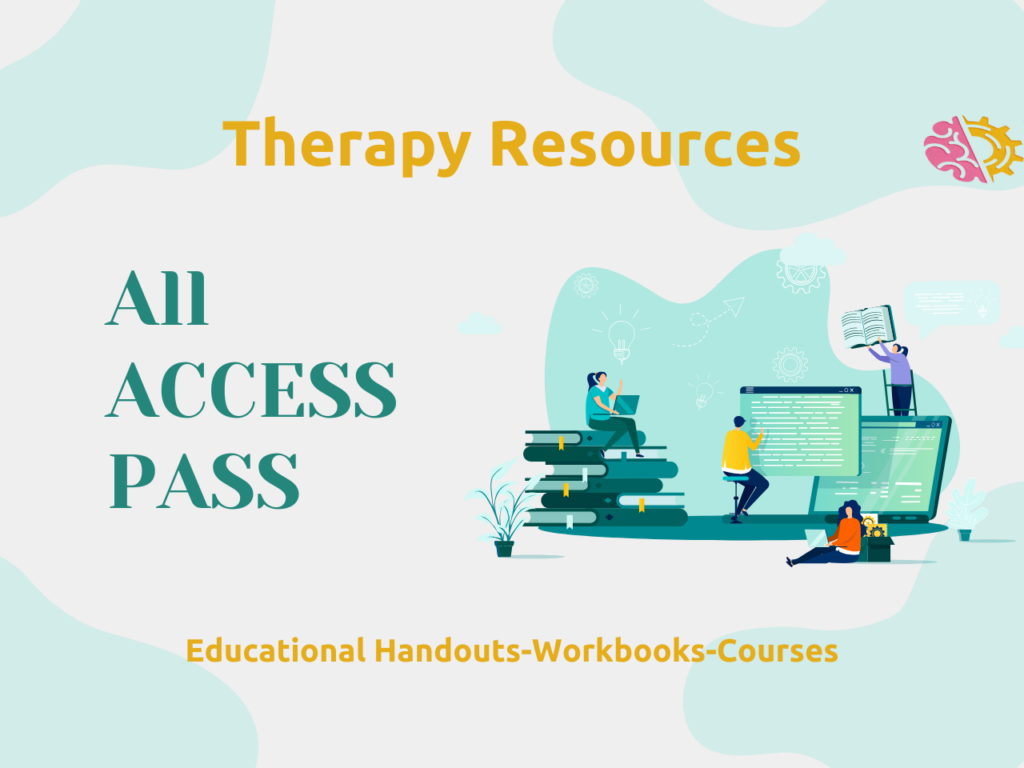
WORKBOOKS | JOURNALS | E-BOOKS | THERAPY HANDOUTS | GUIDED MEDITATIONS
Discover our wide range of meticulously crafted and thoughtfully designed workbooks, journals, e-books, and therapy handouts, tailored to empower your therapy practice or personal growth journey. Our diverse collection of resources caters to individuals seeking self-improvement, mental health professionals, and those yearning for deeper self-awareness. Each product is enriched with valuable insights, practical tools, and actionable strategies to help you unlock your full potential, overcome challenges, and achieve lasting change. Explore our SHOP page to find the perfect companion for your transformative journey, and experience the benefits of investing in your well-being today.
*Some of the links found here are affiliate links: As an Associate I earn from qualifying purchases by way of commission at no additional cost to you. See full disclaimer here:
This Episode Is Brought To You By:

Stream live to YouTube and all of your socials at once; Record your videos and podcasts; edit and post shorts and clips.
This tool is a Game-Changer for any content creator 🙌

TherapyNotes® is a complete practice management system with everything you need to manage patient records, schedule appointments, meet with patients remotely, create rich documentation, and bill insurance, right at your fingertips. Our streamlined software is accessible wherever and whenever you need it.
This tool is a MUST for any practice owner!
BIO: Dr. Jennifer Dall, Ed.D

Helping Women With ADHD
Answer the Question Now What?ADHD is hard. Life throwing you a curve changes everything.
You don’t know what you want but you want to try something new.
You just want to have the tools to create something new and better.Yet here you are…ready to truly reclaim your life and live again.
Learn more about Dr. Jennifer Dall and ADHD Tips
- 🌎 Website: https://adhdholistically.com/
- ♦️Instagram: https://www.instagram.com/adhd.holistically
- ♦️Facebook: https://www.facebook.com/people/ADHDHolistically/100077667853992/
- ♦️LinkedIn: https://www.linkedin.com/in/jennifer-dall-ed-d-226857317/
Watch The Interview
If you liked this episode, be sure to check out my full playlist of interviews here: https://youtube.com/playlist?list=PLnPL9gahfhWatKmy2YSyU0jt20h_jrj3H
Listen To The Interview
*Some of the links are affiliate links: As an Associate I earn from qualifying purchases by way of commission at no additional cost to you.
Want to learn more? Check out my top picks for books on self-improvement and recovery HERE!
The Mental Health Toolbox: Resources and Support for Therapists Seeking Growth & Impact.
Mission Statement: To equip therapists with the tools, knowledge, and strategies they need to enhance their practice, boost their income, and ultimately, improve the lives of their clients. We achieve this through accessible, high-quality content, practical resources, and a supportive community.
NEED CRISIS HELP? If you need immediate crisis help with your depression, you can call the National Suicide Prevention Lifeline at 1-800-273-8255 or text “START” to 741-741
OUTSIDE THE UNITED STATES: See International Suicide Hotlines
WHERE TO FIND MENTAL HEALTH HELP:
-NAMI Referral Helpline: 1-800-950-6264
-California’s Statewide Mental Health Helpline: 1-855-845-7415
ASK: If you have a question you’d like me to answer here on the blog (even if you think it’s a silly one!), please use the form on the CONTACT ME page, or the comment section below. I would be happy to take a poke at it and provide a long form answer when appropriate.
SHARE: Also, be sure to share it with a friend, as there is still a lot of work to be done in raising mental health awareness.
SUBSCRIBE to get your FREE MOOD TRACKING TOOL and quick Mental Health Hacks in addition to this newsletter. Sign-up with the form below.
[mc4wp_form id=”142″]
admin
Latest posts by admin (see all)
- How to Build a Referral Engine Without the “Hustle”: - January 12, 2026
- ADHD Tips for Therapists | with Dr. Jennifer Dall - May 28, 2025
- Why Therapy Fails Men (And How to Fix It) – Insights with Marc Azoulay - May 11, 2025



